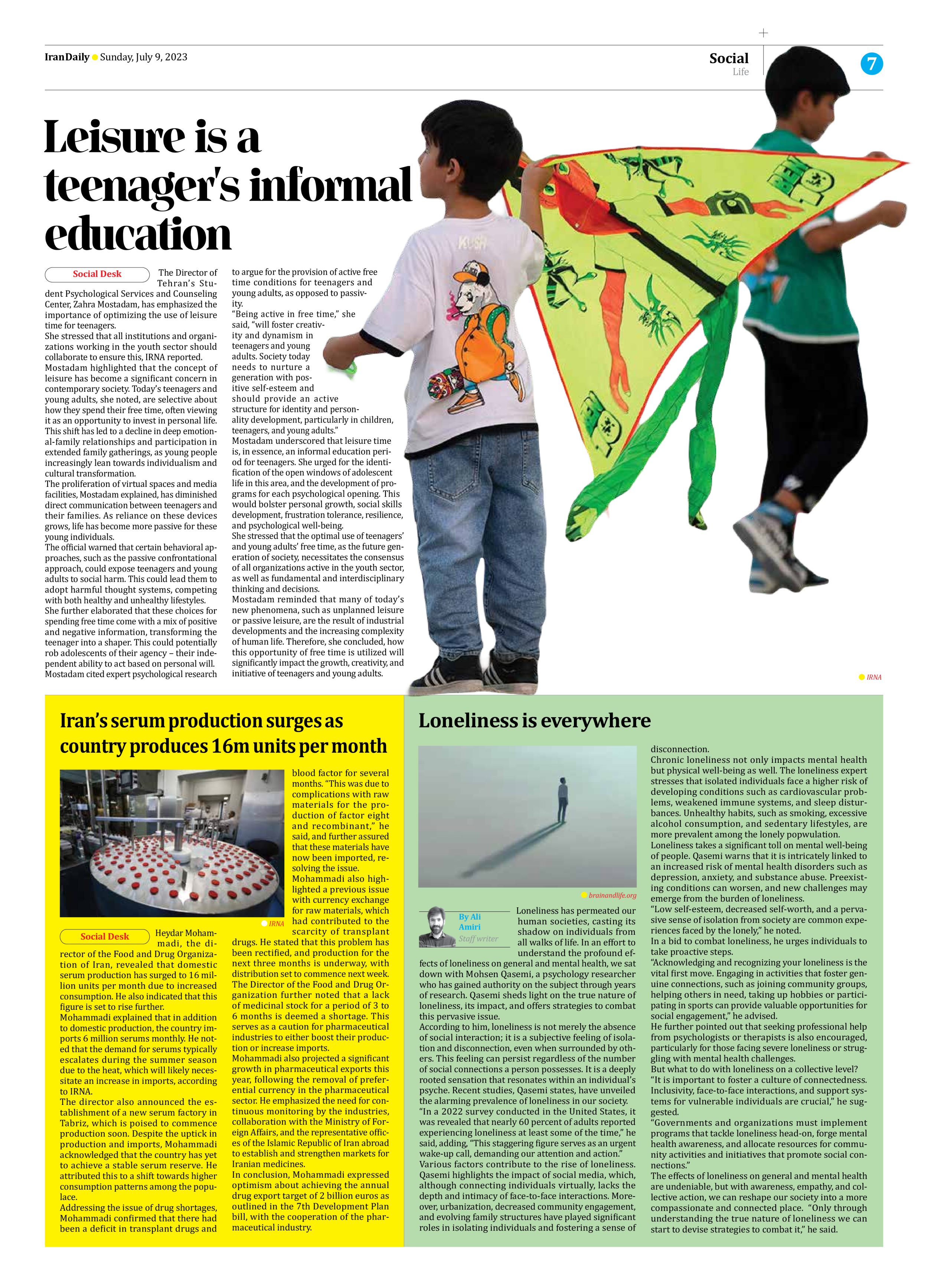
Leisure is a teenager’s informal education
The Director of Tehran’s Student Psychological Services and Counseling Center, Zahra Mostadam, has emphasized the importance of optimizing the use of leisure time for teenagers.
She stressed that all institutions and organizations working in the youth sector should collaborate to ensure this, IRNA reported.
Mostadam highlighted that the concept of leisure has become a significant concern in contemporary society. Today’s teenagers and young adults, she noted, are selective about how they spend their free time, often viewing it as an opportunity to invest in personal life. This shift has led to a decline in deep emotional-family relationships and participation in extended family gatherings, as young people increasingly lean towards individualism and cultural transformation.
The proliferation of virtual spaces and media facilities, Mostadam explained, has diminished direct communication between teenagers and their families. As reliance on these devices grows, life has become more passive for these young individuals.
The official warned that certain behavioral approaches, such as the passive confrontational approach, could expose teenagers and young adults to social harm. This could lead them to adopt harmful thought systems, competing with both healthy and unhealthy lifestyles.
She further elaborated that these choices for spending free time come with a mix of positive and negative information, transforming the teenager into a shaper. This could potentially rob adolescents of their agency – their independent ability to act based on personal will.
Mostadam cited expert psychological research to argue for the provision of active free time conditions for teenagers and young adults, as opposed to passivity.
“Being active in free time,” she said, “will foster creativity and dynamism in teenagers and young adults. Society today needs to nurture a generation with positive self-esteem and should provide an active structure for identity and personality development, particularly in children, teenagers, and young adults.”
Mostadam underscored that leisure time is, in essence, an informal education period for teenagers. She urged for the identification of the open windows of adolescent life in this area, and the development of programs for each psychological opening. This would bolster personal growth, social skills development, frustration tolerance, resilience, and psychological well-being.
She stressed that the optimal use of teenagers’ and young adults’ free time, as the future generation of society, necessitates the consensus of all organizations active in the youth sector, as well as fundamental and interdisciplinary thinking and decisions.
Mostadam reminded that many of today’s new phenomena, such as unplanned leisure or passive leisure, are the result of industrial developments and the increasing complexity of human life. Therefore, she concluded, how this opportunity of free time is utilized will significantly impact the growth, creativity, and initiative of teenagers and young adults.







